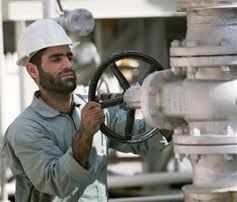 Brent crude, the global oil price benchmark, on Thursday fell below $92 a barrel, its lowest level since June 2012.
Brent crude, the global oil price benchmark, on Thursday fell below $92 a barrel, its lowest level since June 2012.
This slump, attributed to a weak global economic recovery and oversupply in the market, is set to narrow Indian oil firms' losses on sale of petroleum products and lower the government's subsidy burden. Brent crude oil for November delivery slipped to $91.37 a barrel, the lowest in 27 months.
As at 11 pm (IST), it was trading at $92.89 a barrel - $1.27 (1.35 per cent) lower that its previous close.
The sharp drop in the global rate comes amid price cuts by Saudi Arabia's state-owned oil firm, Saudi Aramco. About 75 per cent of India's crude oil requirements are met through imports.
The country's oil import bill for last financial year stood at $150 billion.
The government had budgeted for a 26 per cent decline in petroleum subsidy in the current financial year to Rs 63,426 crore (Rs 634.26 billion), against Rs 85,480 crore (Rs 854.80 billion) last year.
The expectation, outlined in the Union Budget in July, is based on the assumption of the crude oil price staying between $105 and 110 a barrel.
With prices falling below that range now, the subsidy burden is likely to be eased further.
A Morgan Stanley India Economics report, dated September 29, had said a 10 per cent reduction in the crude oil price would lower India's import bill, besides bringing its current account deficit (CAD) down by 0.6 per cent of gross domestic product (GDP).
"Every $10-a-barrel change in oil price changes fuel subsidy in India by $6.5 billion (0.3 per cent of GDP), if domestic fuel prices remain unchanged.
For calculation of fiscal deficit, assuming the government's share in subsidy burden at 50 per cent (oil subsidy burden is shared by the government and oil marketing companies), a change of $10 a barrel will affect the fiscal deficit by $3.25 billion, or 0.15 per cent of GDP," said the report authored by Chetan Ahya and Upasana Chachra.
According to CARE Ratings Chief Economist Madan Sabanavis, with every $10-a-barrel fall in crude oil prices, the country's annual oil import bill will come down by $16-17 billion.
This will substantially reduce CAD. And, if the oil price falls by $1, the rate of annual wholesale inflation would fall by 10 basis points, he said.
This improvement will work only when the benefit of fall is fully passed on. The average Brent crude oil price in 2011-12 was $114.5 a barrel. Since then, it fell by around $3 a year till March 2014.
During this period, India was able to end its petrol subsidies.
However, Brent has averaged at $105.65 so far this year. As prices have started falling lately, the real impact would be felt in import bill, inflation and CAD in the coming quarters.
With a continuing decline in the global price, the price of the Indian basket of crude oil had fallen to $95.34 a barrel on Tuesday, from a high of $115 a barrel in mid-June.
The development comes as a blessing for the government, as the country's energy imports - growing at an average 14 per cent annually in the past five years to $161 billion - accounted for 36 per cent of its total imports last financial year. A falling crude oil price, coupled with a sustained rise in domestic rates, has already eliminated domestic oil marketing companies' losses on retail sale of diesel.
The oil firms' over-recovery (gains) on sale of each litre of diesel has increased to Rs 1.90 since Wednesday, amid a pending decision on diesel decontrol.
However, the three firms - Indian Oil (IOC), Bharat Petroleum (BPCL) and Hindustan Petroleum (HPCL) - are still incurring a combined daily underrecovery (loss) of Rs 156 crore on kerosene and cooking gas sales.
The companies' underrecoveries stood at a whopping Rs 1,39,869 crore (Rs 1,398.69 billion) last financial year. Of that, Rs 62,837 crore or Rs 628. 37 trillion was accounted for by diesel alone.
In the first quarter of this financial year, their losses stood at Rs 28,691 crore - Rs 9,000 crore (Rs 286.91-Rs 90 billion) on diesel, Rs 7,500 crore (Rs 75 billion) on kerosene and Rs 12,000 crore (Rs 120 billion) on cooking gas.










